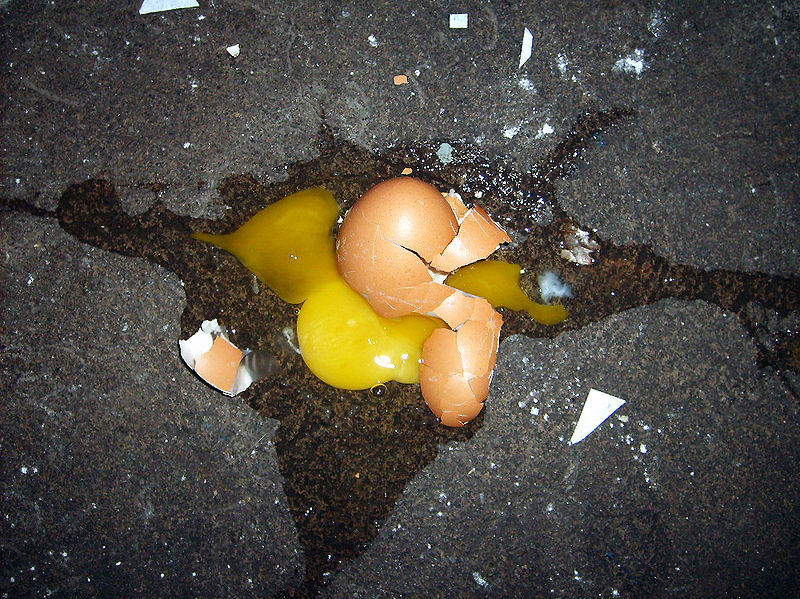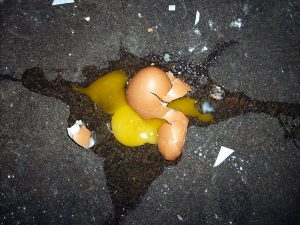Oliver Barnes | Science
Every month we’ll be bringing you the best in science with our columnist Oliver Barnes in ‘What’s the Matter?’. If you’ve got anything you want to learn about from space to spores then send us an email at [email protected]! Now let’s get experimenting…
It’s super easy to change a protein’s conformation in space, in fact we do it everyday. Protein denaturing is the technical term but to you it’s just cooking an egg. Proteins are everywhere and we’re going to prove it!
Seeing some protein interaction is easy when you expose high protein items such as eggs or milk to extreme conditions like high acidity, high temperatures or salt. Here’s how:
All you need is…
1 cup of milk A sink
50 mls of vinegar Coffee filters
1 lemon
2 containers
A strainer
Method:
- Put equal parts milk in each container
- Add the juice of the lemon to one, vinegar to the other and swirl them until it’s all mixed in.
- Let stand for 30 minutes.
- Filter the contents of each container using your coffee filters.
- Inspect!
All the white powder that is on the filter paper is something called casein protein. In this case we used acid to denature the protein and it became a solid.
This protein is important for growth and development, is easy to digest and is a high quality source of amino acids. But get a fresh glass of milk instead!
(1)https://www.ocf.berkeley.edu/~asiegel/posts/?paged=6
Average length of each human protein: 480 amino acids



